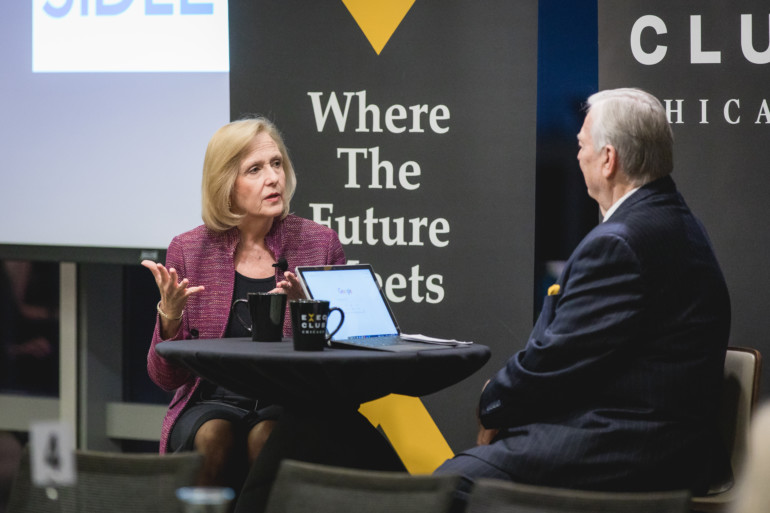For over 50 years, PBS and its more than 330 member stations have fulfilled the mission of providing trusted programming that is uniquely different from commercial broadcasting. Last November, Paula Kerger, the longest-serving PBS President and CEO, spoke with journalist Bill Kurtis during an Executives’ Club “Meeting the Moment” event to share insight on how she’s kept the network focused on engaging, educating and inspiring its audience.
Mistakes and failure are part of the journey
When Kerger started college at University of Baltimore, she wanted to be a doctor. She was determined to have a medical career but after failing organic chemistry she decided becoming a doctor wasn’t the path for her. Instead, she studied business, leading her to a world of nonprofits and fundraising. Eventually, her expertise in raising money brought her to public broadcasting, where she is now the President and CEO of PBS.
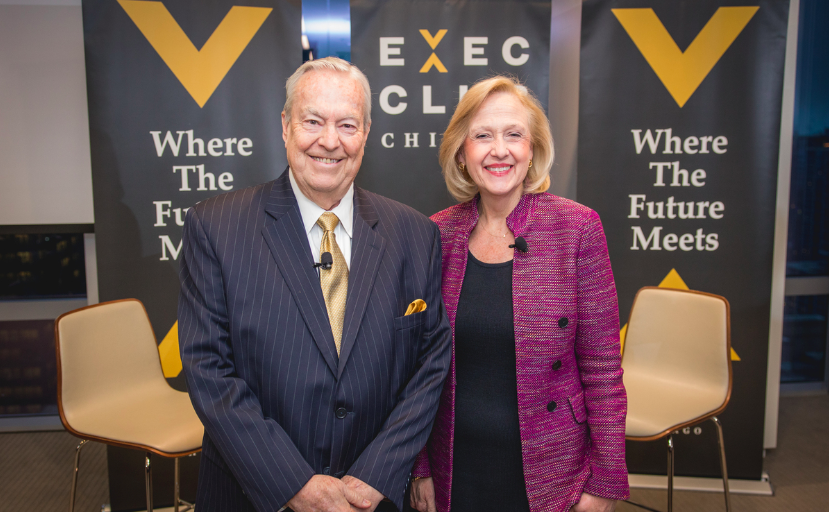
Working in public broadcasting was not part of Kerger’s plan as a young adult, but her willingness to explore and try new things brought her to the booming position she has today.
“Kids believe that if they make a mistake or something doesn’t quite work out the way they think it should, their life is over. That, somehow, everyone else around them has their life figured out and the reality is most of us don’t,” Kerger said. “It’s the journey, not always the destination. Be willing to try things and explore. Sometimes you end up in places you never thought.”
Mentors are essential for growth
Staying open to new opportunities was essential to Kerger’s growth, but she also credits extraordinary mentors she learned from, such as Ward Chamberlin and Newton Minow.
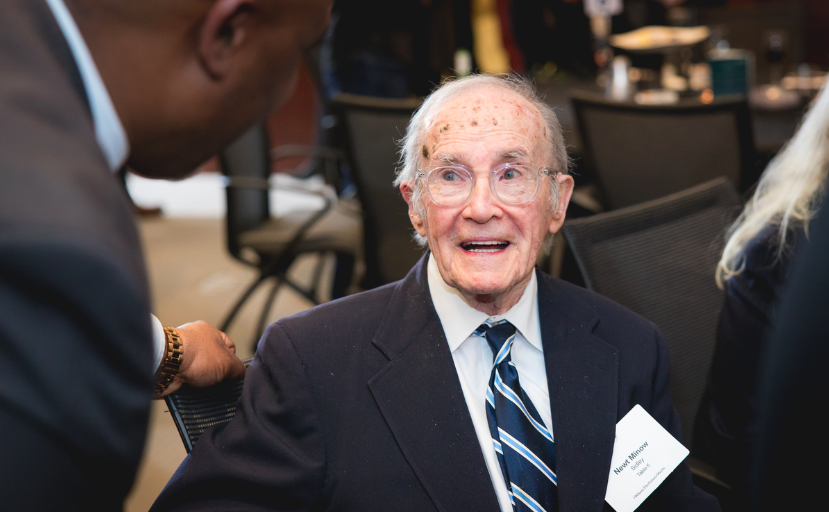
Chamberlin was a president of WETA and did some work at Channel 13 after he retired, where he met Kerger. He took Kerger under his wing and showed her she was talented at more than fundraising. He worked with her and inspired her to become the station manager — her first stepping stone to PBS.
Kerger was named president of PBS in 2006, and recognized Minow as one of the great public broadcasting giants and industry pioneers. About three months into the job, she received a call from Minow asking her to meet him in Chicago at The Drake Hotel. From the moment they met, Minow was a resource of feedback and guidance, helping Kreger to evolve PBS into one of the most trusted public broadcasting networks.
“People like Newt, who has been not only a role model but has stayed engaged over the years, prompted us to think about what we should be doing to continue to evolve and be relevant for audiences to come,” says Kerger. “[His mentorship] made all the difference to me.”
Media organizations need diversity to speak to a diverse audience
Recent years — specifically following the 2020 murder of George Floyd and spark of Black Live Matter protests — have made many organizations and individuals look very carefully at themselves, including PBS. Since PBS is a media organization for all, it was essential to have a diverse company — and that went beyond the staff. They focused on creating programming for all audiences and working with diverse producers and vendors that shared the PBS values.
“It matters who tells the story. It matters who controls the stories. It’s been a priority of public broadcasting, even more so over the last few years,” says Kerger.
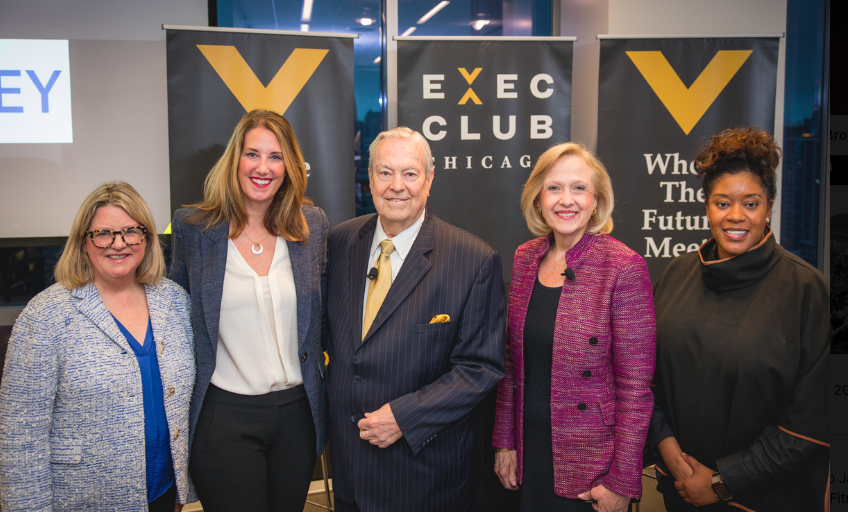
Local media organizations are a powerful asset for the country
PBS is locally owned, operated and governed. It is one of the only genuinely local networks, which, Kreger says, makes people trust PBS. “You tend to trust your local friends and neighbors, and maybe not so much the people across the country who may not understand you,” says Kreger.
This sentiment is particularly true in media. Kreger explains that many commercial stations will parachute journalists into a community to file a story, but the individual doesn’t fully understand the story’s relevance to locals. At PBS, the organization focuses on scalable tasks so stations can focus on what they do, which no one else can do; tell local stories and make national content relevant locally. Making national news relevant, like the west coast water supply crisis, brings everyone into the conversation and helps individuals find solutions, individually and collectively, as a community.
“In public broadcasting, our content comes to us from our stations. We are in every community, and I think that matters a lot,” says Kerger. “We have local, powerful media organizations that all come together with a sense of common purpose, which is the most powerful system we could have in this country and serves us extraordinarily well.”
More from Better:
- Paul Nicklen, Cristina Mittermeier, Bill Kurtis and Donna LaPietra: 4 Eco-Warriors on How to Save Our Oceans and Planet Now
- 2023 Top Health, Wellness and Fitness Influencers
- Can One Person Really Make an Impact? The Answer Is Yes — Here’s How
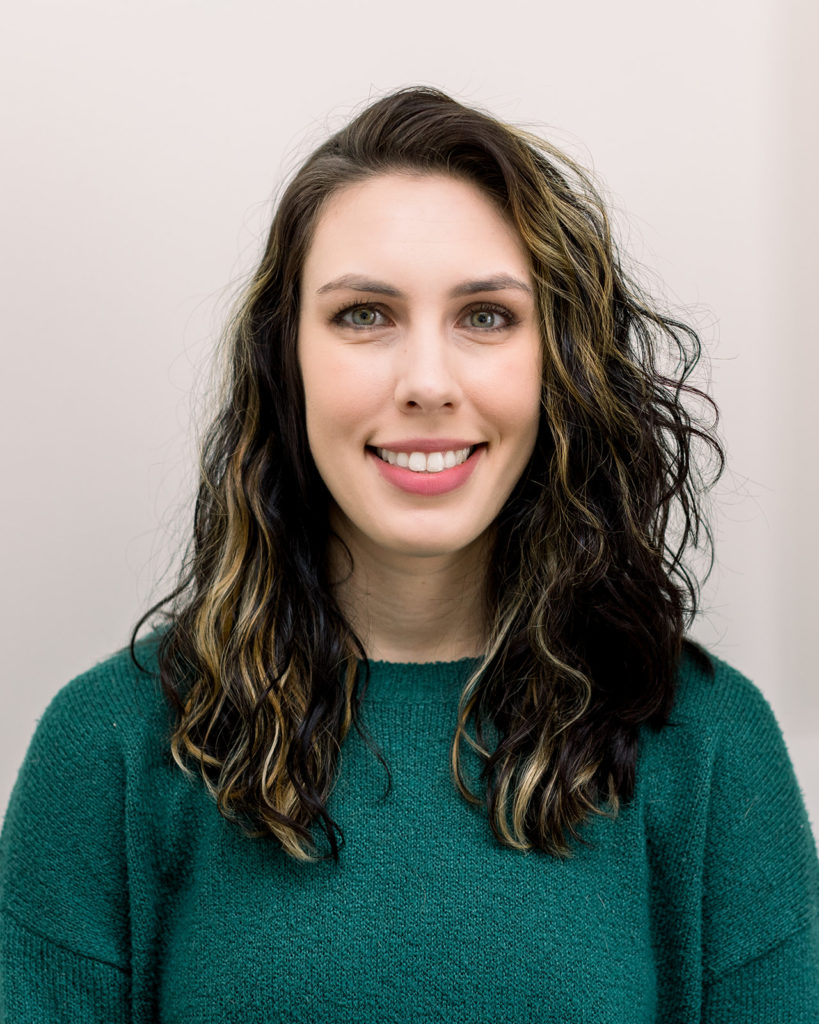
Jessica Braun Gervais is a Chicago-based freelance writer specializing in health, wellness, and fitness. She earned a B.A. in Journalism from Columbia College and has written content for various health and wellness institutions. Jessica Braun’s passion for wellness comes from her life as an elite athlete competing in Muay Thai kickboxing competitions across the country. In addition to sharing her expertise through writing, Jessica Braun also works as a group fitness instructor and personal trainer. When she’s not writing or training, Jessica Braun enjoys reading historical fiction novels, discovering new coffee shops, and cuddling with her cattle dog, Brady.
